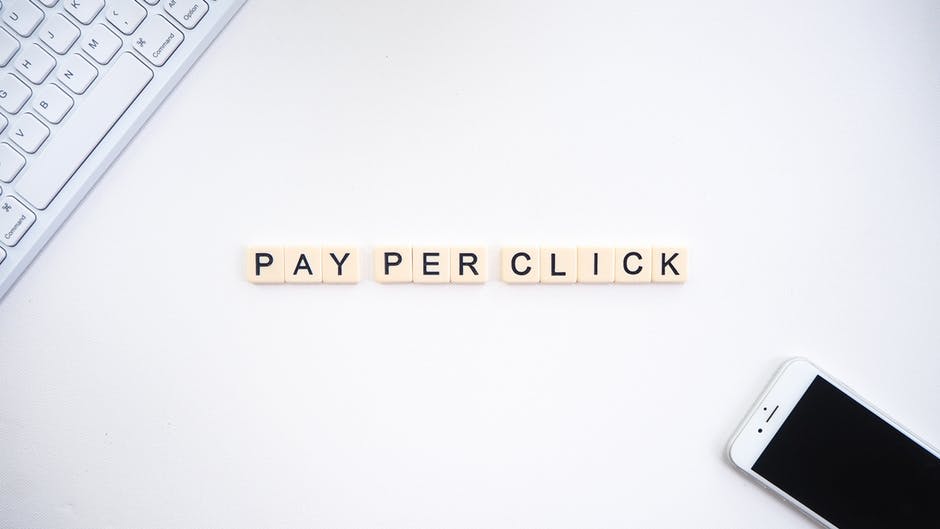How Does Pay Per Click Work in Social Media and Advertising?
In 2019, digital advertising will dominate traditional mediums such as newspapers and television. More advertisers than ever are finding success and value thanks to Google, Facebook, and Amazon.
Pay-per-click ads one of the most popular forms of digital advertising. They’re effective and affordable for businesses both large and small. In short, they can be the difference between a successful advertisement campaign or a total failure.
But how does pay-per-click work, and is it right for you and your company? Find out with this detailed overview of pay-per-click advertising.
1. What Are Pay-Per-Click Advertising Services?
A pay-per-click advertisement, or a PPC ad, appears across a variety of websites. You might see them on your Facebook feed or at the top page of Google after a search. When you pay for PPC ads, you only pay when someone clicks the link.
They’re a popular choice for advertisers to round out larger advertising campaigns. And since you only pay when someone follows the advertisement, it can be a cost-effective solution.
The meat of a PPC ad relies on great keywords. On most advertisement mediums, your ad will only appear when someone searches with a specified keyword. The popularity of the keyword is a major factor that determines how much you’ll pay every time someone clicks.
2. How Does Pay-Per-Click Work?
Let’s say you’re running a campaign for a travel agency. You might have several different ad groups highlighting some of your popular travel packages. Maybe one of them is a trip to Hawai’i.
Within this Hawai’i ad group, you’ll want to utilize many keywords to catch as many potential customers as possible. Maybe one keyword is “Hawaii vacation.” You’ll have to bid for this keyword in a keyword auction, which we talk about in the next section.
Every time someone searches with that keyword on your ad network, your advertisement will appear. It likely won’t be much more than some text, though some networks also accept pictures and animations. For example, banner ads are a form of PPC.
Although your advertisement has appeared, it hasn’t cost you anything. But if the user clicks on your advertisement, it will direct them to the landing page you’ve specified. At this point, the ad network will charge you even if the customer leaves the page without making any other actions.
Since you know the rate for each click, you can set aside a specific amount of money for this portion of your overarching advertisement campaign. When the funds run out, you’ll lose control of that keyword and your advertisement will no longer appear.
Refer to this guide to PPC for more information about how and why to use this form of advertising.
3. What is a Keyword Auction?
If you’re using a search engine ad network, you’ll have to compete for keywords. Common keywords are sought after, so many companies are willing to pay the big bucks to secure them. But it’s not just about the money.
On Google Ads, you’ll receive a quality score. This is based on the relevance of your advertisement package, such as your choice of keywords and the landing page. When you make a bid on a keyword, Google multiplies the bid based on your quality score.
With a great quality score, you can pay less than other companies and still snag the top spot. But you might not need the top spot. Google Ads might show up to 4 PPC ads with the same keyword.
It’s substantially cheaper to be the third advertisement than to be at the top spot. Also, you won’t pay the exact amount you bid. Your actual PPC cost will be adjusted by other bidders, as well as your quality score.
4. Where Can You Place PPC Paid Advertising?
Google Ads is the most well-known advertising network. These can take the form of either text or banner ads after a user performs a search. Although Google Ads is pervasive, it’s no longer the de-facto ruler of a PPC campaign.
The prevalence of social media has created new ways for advertising companies to reach their intended audience. Many companies rely on Google Ads but also expand into social PPC digital advertising.
Social PPC is a bit different than using a traditional search engine. For example, Facebook and Twitter don’t rely on keywords. These advertising networks automatically display curated ads to users most likely to engage with them.
And engagement is a key part of using social media PPC in addition to a traditional search engine. Users on social media will be able to interact with your content, share it, retweet it, or whatever the case may be. This can help you create a conversation about your brand or earn media.
Lastly, you can place your advertisements with the help of publishers. A PPC publisher partners with a PPC network. The publisher may own a massive quantity of popular or semi-popular websites.
When you work with a network, you’ll have an option to use their partnered publishers. This can put your advertisements on relevant websites they own so you don’t have to rely purely on social media or search engines.
Run a Successful Campaign with Pay-Per-Click Ads
There’s no denying that PPC advertisements are a complicated affair. And since each ad network does things a different way, it can take a long time to use them efficiently. When you asked “how does pay-per-click work,” you probably didn’t expect such a complex answer.
But the results of PPC speak for themselves. As a beginner, you won’t find much use out of a PPC campaign. But now you’ll be in a better position to collaborate with a social media expert and find the results you’re looking for.
If you found this article informative, search for more social media news on our website.

